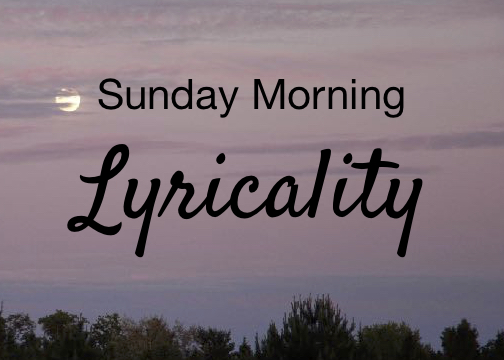Welcome to Sunday Morning Lyricality, featuring a weekly song or poem by a Minnesota writer, followed by a prompt to help you write your own poem.
“Dear Mimi” is addressed to the speaker’s grandmother, who, in the 1930’s, “escaped the diphtheria epidemic / in Minnesota” by moving to Montana. Probably many of us dream of escaping our current situation. But, this poem reminds us, when we flee a bad situation, we frequently will find ourselves in another unpleasant place. Rather than delivering a sermon on the wisdom of staying with our problems, however, the poem’s speaker simply relates her own similar experience–a strategy that connects people and fosters empathy. This poem explores an important human connection. It also touches on the reasons some people plant flowers or write poems, two activities rising in popularity during this time of COVID-19.
Tracy Rittmueller
Dear Mimi
Laura Hansen
I think I know how you must have felt,
leaving Minneapolis
with its elm-lined streets
and gushing lakes,
to arrive in eastern Montana,
to have the color stripped from your life.
In Barcelona, I found Parque Guelll
not the tiled, mosaic-craze of color
promised on the postcard
but discarded and dusty, crevices
streaming with sand, benches
empty. Having left my bone-dry
job for an adventure of a lifetime,
I felt stranded there, betrayed
by carnival atmosphere
gone cold. And you, having
escaped the diphtheria epidemic
in Minnesota found yourself
facing the dust bowl in the high
and dry badlands of Montana,
raising your family amid
rattlesnakes, writing
poems to your garden
of parched and fading
flowers.
*****
Laura L. Hansen writes to give public voice to her inner voices. As an aphantasiac and granddaughter of a poet, Laura learned early on she could preserve memory through writing. Known for writing lyrical, image-rich poetry, Ms. Hansen’s work has appeared in a number of regional literary journals as well as online, and on public radio and television. Her book, Midnight River, was a Stevens Poetry Manuscript Prize Winner and a Finalist in the Midwest Book Awards. An avid reader, Laura lives along the Mississippi River in Central Minnesota.
Want to write your own poem of connection?
Are you wondering how to write a poem to show your connection to someone important? You might borrow the structure of this poem, which is made of four complex sentences forming one stanza. The first and last detail Mimi’s experience, while the middle two sentences describe the poet’s corresponding experience.
Mimi’s story, like anyone’s story, could easily be turned into a novel. Instead, this poet chooses one image of her grandmother, to craft a poem around the intersection of two lives. It is fitting that a literary piece about a grandmother and granddaughter, who both write poems, should take the shape of a poem. Look at this poem’s culminating image, the one everything leads to:
writing
poems to your garden
of parched and faded
flowers.
To begin your poem, choose an interesting incident in your important person’s life, one that seems eccentric. Perhaps it even looks like a major mistake. Close your poem with this thing the person has done. Phrase it in the present tense. You might, as this poet did, choose to address the person directly, with the word “you.”
Now back up and jot down some notes about how your person came to be doing this strange thing. Where were they before they did this? When did this happen? What did that place look (or smell or taste) like? Why or how did they end up in this current place, and what sensory images do you find here? What else are they doing in this place?
Notice how Laura Hansen grounds the reader with specific details evoking time and place. We see Minneapolis with its elms and lakes and the dry, colorless Montana badlands during the dustbowl. Work to give your readers a similar sense of grounding. Try to write this experience in two complex sentences, with the clauses separated by commas, as Laura has done.
Now consider when you have done something like your important person did. Where were you? Why? What did you expect? What did you experience? Again, try to keep it to two complex sentences.
As you form your words into a poem, begin with the words “I think I know how you must have felt,” followed by the first sentence. Notice how the poet relocates us geographically, from Minnesota to Montana. She then transition to her own experience, with the words, “In Barcelona, I…” You can use the same tactic. Begin your sentence about your own experience with a place or a time, for example, “on Block Island, I…” or, “in 1987, I…”
After you’ve condensed your experience into the center of the poem, shift back to your important person’s, experience with “And you,” or “But you.”
In revising your poem, you might rearrange the sequence of the clauses within each sentence, until they seem most logical and clear. Change a few words to make your images more vivid and precise. Play with the punctuation to see how it effects the pace and tone. What happens when you eliminate the punctuation and let the line breaks serve as pauses? What happens if you change some or all of the commas to periods?
*****
“Dear Mimi” from The Night Journey ©2020 by Laura Hansen, appears with the permission of the author.
